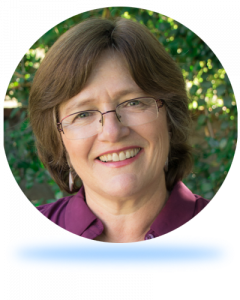University of California, Los Angeles
January 31 – February 4, 2022

![]()

 Lucy Jones
Lucy Jones
Dr. Lucy Jones is the founder and Chief Scientist of the Dr. Lucy Jones Center for Science and Society, with a mission to foster the understanding and application of scientific information in the creation of more resilient communities, and a Research Associate at the Seismological Laboratory of Caltech. With a Bachelor of Arts in Chinese Language and Literature from Brown University and a Ph.D. in Geophysics from MIT, Dr. Jones has been active in earthquake research for decades, furthering earthquake risk reduction, including 33 years of federal service with the US Geological Survey. Her work at the USGS included developing the methodology for estimating the probability that an earthquake will be a foreshock to a bigger event, leading the creation of a national science strategy for natural hazards research, creating the first American major earthquake drill, the Great ShakeOut, that has expanded to now encompass over 60 million participants around the world in 2019 and writing over 100 published papers on statistical seismology and integrated disaster scenarios. Her pioneering science was recognized with numerous awards, including the Samuel J. Heyman Service to America Medal), the Ambassador Award from the American Geophysical Union, the Distinguished Service Award from the US Department of Interior, and the William Rogers Award from Brown University.
Since completing her federal service, Dr. Jones has also pursued other interests, including authoring The Big Ones: How natural disasters have shaped us (and what we can do about them). Published by Doubleday in 2018, the book was an Amazon Best Science Book of 2018. In 2020, she launched the podcast, Getting Through It, with co-host John Bwarie. She has also focused on performing on the viol with Los Angeles Baroque and SoCal Viols, and composed a piece for four viols on climate change, In Nomine Terra Calens, https://www.youtube.com/watch?v=4plSXjcjxVA. She is now leading a project to engage musicians in advocating solutions to the climate problem called TEMPO: Music for Climate Action.
Presentation: Risk as analysis and risk as emotion
Lucy Jones, Caltech
Abstract
Long before engineers existed, human beings evolved the concept of risk and appropriate responses to it. Psychologists have shown that we have parallel processing systems for risk, the analytical and the affective. The analytical is logical and slow, bringing reason and scientific deliberation to hazard management. The affective is our fast, instinctive and intuitive reactions to danger. Our survival has often depended on the affective system and thus we are wired to only act when our emotions are involved. Because unseen risks are more frightening, we take more precautions against nuclear accidents and earthquakes than other risks that are far more likely to kill us, such as car accidents. This talk will explore the various emotions that govern our response to risk and how this information can be used to encourage mitigation.